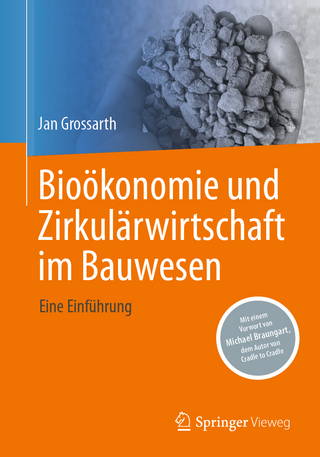
THE ECONOMICS OF SOLID WASTE REDUCTION
Edward Elgar Publishing Ltd (Verlag)
978-1-85278-673-1 (ISBN)
She thoroughly analyses the relationship between the quantity of waste that individuals discard and such socio-economic variables as household income, the age of individuals and the population density of the community. In addition she develops a utility maximization model that suggests that user fees do encourage people to recycle waste. Finally she provides simple instructions for forecasting the quantity of waste discarded by a particular community.
This unique book will be essential reading not only for social scientists with an interest in the environment but also for government officials and community activists concerned with the solid waste crisis.
Robin R. Jenkins, US EPA Headquarters, Washington, DC, US
Part 1 Introduction: the problem with the market for solid waste services; the primary purpose of this book; existing research on the Household's Response to User Fees for SWS; factors that affect residential and commercial demand for SWS; characteristic of the data collected; a summary of the empirical results; an outline of this book. Part 2 A review of the literature: the impact of volume-based user fees; the impact of service-level-based user fees and service levels; the impact of income and other socioeconomic variables; population density. part 3 Models of the household and the firm: a model to explain the household's decisions regarding solid waste; a model to explain the firm's decisions regarding household waste. Part 4 The residential and commercial demand equations - some econometric issues: specifications of the empirical model; stacking and aggregating the data; method of estimation. Part 5 A description of the data and details of the empirical model: data related to waste quantities and prices of SWS; the funding of SWS in non-user fee communities; inconsistancies within the quantity data; data related to community characteristics and regional prices; details of the empirical model. Part 6 How waste quantities respond to a user fee for SWS: results of the GLS estimation. Part 7 Tests and respecifications of the empirical model: an annual version of the generalized least squares (GLS) model; a Hausman test for endogeneity of the user fee variables; a test for constant slope coefficients. Part 8 Forecasting waste quantities: forecasting the quantity of residential waste; estimating the welfare gain from a residential user fee; forecasting the quantity of commercial waste; forecasting the sum of residential and commercial waste.
| Reihe/Serie | New Horizons in Environmental Economics series |
|---|---|
| Verlagsort | Cheltenham |
| Sprache | englisch |
| Maße | 156 x 234 mm |
| Themenwelt | Naturwissenschaften ► Biologie ► Ökologie / Naturschutz |
| Wirtschaft ► Volkswirtschaftslehre ► Ökonometrie | |
| ISBN-10 | 1-85278-673-6 / 1852786736 |
| ISBN-13 | 978-1-85278-673-1 / 9781852786731 |
| Zustand | Neuware |
| Haben Sie eine Frage zum Produkt? |
aus dem Bereich


